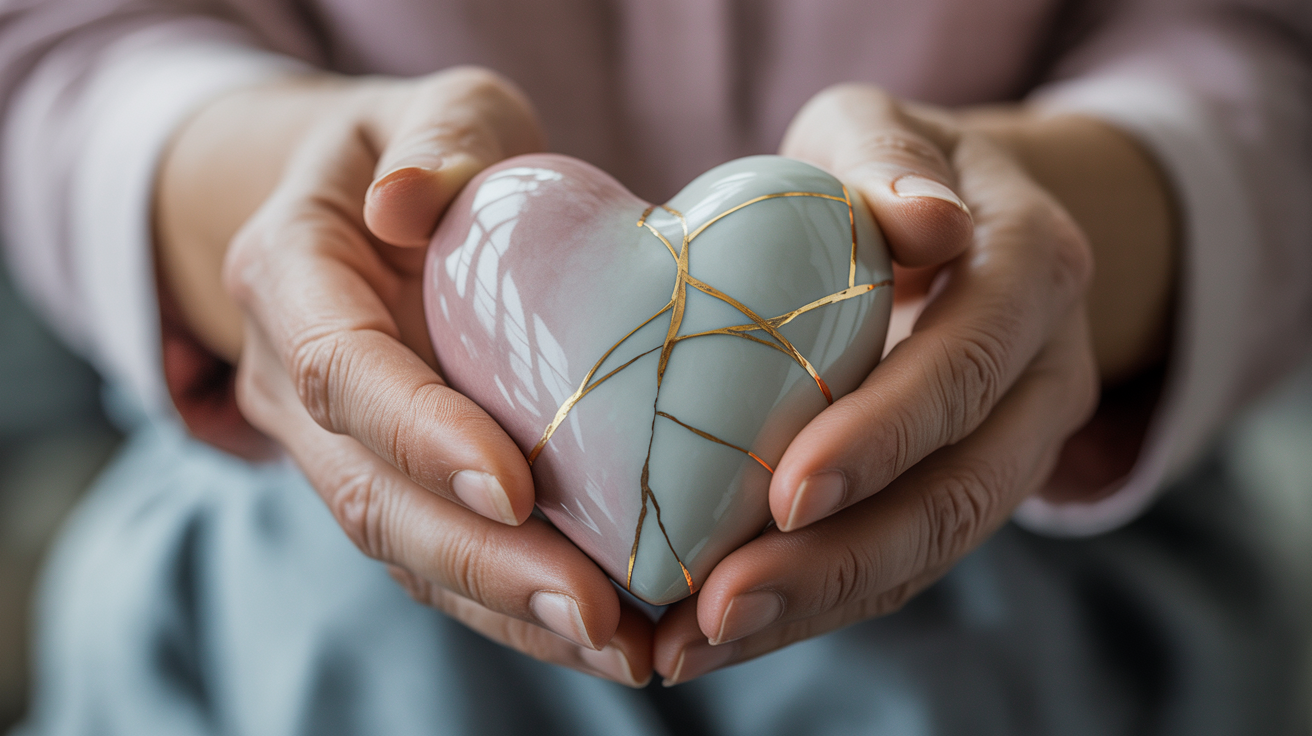
20 Journal Prompts to Rediscover Who You Really Are
There’s a strange kind of ache that sneaks up on you when you least expect it. It’s not pain, exactly. Not sadness either. It’s something quieter but more persistent—a constant whisper asking: “Who am I, really?”
You show up every day, checking boxes and meeting expectations. You smile when you need to, speak when spoken to, and keep the world spinning. But deep down, something feels misaligned. Like you’re walking through a life that looks perfectly fine from the outside but doesn’t quite fit on the inside.
You can’t fix what you don’t understand. You can’t love what you won’t look at. And you can’t grow into your authentic self if you don’t even know who that person is.
That’s exactly why self-discovery journaling matters more than ever in our fast-paced, always-connected world.
Why Self-Discovery Journaling Changes Everything
Self-discovery isn’t just another wellness trend or productivity hack. It’s the foundation of every meaningful change you’ll ever make in your life. When you understand who you truly are beneath all the roles and expectations, you gain access to a kind of clarity that transforms everything—your relationships, your career choices, your daily habits, and most importantly, your relationship with yourself.
Journaling for self-discovery isn’t about neat pages or perfect handwriting. It’s about sitting down with yourself, asking something real, and answering with complete honesty. It’s about coming home to the person you’ve always been but may have forgotten along the way.
The 20 journal prompts in this guide aren’t just questions—they’re keys to different rooms within yourself. Some rooms you’ll recognize immediately. Others might feel foreign at first. But each one holds a piece of the puzzle that is uniquely, authentically you.
How to Use These Self-Discovery Journal Prompts
Before we dive into the prompts themselves, let’s establish a foundation for your journaling practice. The goal isn’t to answer every question perfectly or even quickly. Instead, choose one prompt that resonates with you today. Sit with it. Let it breathe. Write whatever comes up, even if it feels messy or incomplete.
Set aside 15-20 minutes in a quiet space where you won’t be interrupted. Don’t worry about grammar, spelling, or making sense to anyone else. This writing is for you and you alone.
Now, let’s begin your journey of self-discovery.
20 Powerful Journal Prompts for Self-Discovery
1. What parts of myself have I been hiding from the world—and why?
This question cuts straight to the heart of authentic living. Maybe it’s your ambition that you’ve learned to downplay. Perhaps it’s your natural sensitivity that others have called “too much.” Or it could be your creative side that you’ve relegated to weekend hobbies.
When did you start believing that certain parts of you weren’t welcome in the world? What messages did you receive—spoken or unspoken—that taught you to tuck away pieces of your authentic self?
Write about what might happen if you let those hidden parts be seen. What would change in your relationships, your work, your daily life if you gave these aspects of yourself space to live and breathe again?
2. When do I feel most like myself?
This isn’t about when you feel successful or impressive. It’s about when you feel most aligned with your true nature. What are you doing in these moments? Who are you with? What does your body feel like—light, relaxed, energized?
Pay attention to the details. Are you alone in nature? Creating something with your hands? Having deep conversations with close friends? Teaching or mentoring others? The specifics matter because they point toward what your soul truly craves.
How can you bring more of these moments into your regular routine? What small changes could you make to honor the version of yourself that feels most real?
3. What childhood memory still lives in me—and why?
Our childhood experiences shape us in ways we’re often unaware of as adults. Think of a memory that surfaces regularly—it doesn’t need to be dramatic or traumatic. Sometimes it’s the quiet moments that leave the deepest impressions.
Maybe it’s the feeling of being truly seen by a teacher. Or the shame of being laughed at when you shared something important. Perhaps it’s the safety you felt in your grandmother’s kitchen or the loneliness of always being picked last.
What did this memory teach you about yourself, others, or the world? How does this early experience show up in your adult life? Understanding these connections can help you recognize patterns and make conscious choices about what to keep and what to release.
4. What’s a truth I haven’t said out loud?
We all carry truths that feel too scary, too vulnerable, or too complicated to voice. These might be truths about our relationships, our dreams, our fears, or our deepest needs. Sometimes we haven’t even fully admitted these truths to ourselves.
This prompt isn’t about truths you need to share with others (though that might come later). It’s about acknowledging what you know in your bones but have been whispering under your breath or avoiding altogether.
What shifts inside you when you finally write these words down? What happens when truth steps out of the shadows and into the light of your awareness?
5. What does safety feel like to me—and where do I feel it most?
Safety isn’t just about physical security. Emotional safety is the feeling that allows you to be unfiltered, unafraid, and unmasked. It’s the space where you can share your real thoughts, express your true emotions, and make mistakes without fear of rejection or judgment.
Who or what creates this feeling of safety for you? Is it certain people, specific places, particular activities? How can you protect and cultivate more of these safe spaces in your life?
Understanding what safety feels like helps you recognize when it’s missing and gives you a blueprint for creating it wherever you go.
6. What belief about myself do I know isn’t true—but still act like it is?
These limiting beliefs often sound like: “I’m not enough,” “I don’t matter,” “I always mess things up,” or “I’m too much for people.” They’re so familiar that they feel like facts rather than opinions.
Where did this belief begin? Can you trace it back to its origins? What evidence in your life actually contradicts this belief? What truth wants to take its place?
Sometimes simply naming these false beliefs and examining their origins can begin to loosen their grip on your life.
7. What version of me have I outgrown—but keep performing anyway?
We all have roles we played that once served us but no longer fit. The people-pleaser. The perfectionist. The class clown. The responsible one. These versions of ourselves helped us navigate certain situations or relationships, but they might not reflect who you truly are anymore.
Is this still who you are, or just who you learned you had to be? What would it look like to retire these outdated versions of yourself? Who would you be if you stopped performing these roles and simply existed as you are?
8. What am I afraid people would think if they really knew me?
This fear keeps so many of us playing small. We worry that people would find us too emotional, too intense, too complicated, too ambitious, or too different. We edit ourselves constantly to maintain an image that feels safe but isn’t truly us.
Write out this fear in detail. Look it in the face. Then ask yourself: Is it worth staying hidden to avoid this judgment? What parts of you have been silenced to keep others comfortable? What might you gain by risking authentic expression?
9. What do I do to feel “enough”?
Many of us have developed strategies to prove our worth—overworking, overggiving, staying silent, being the perfect partner/friend/employee. These behaviors often stem from a deep fear that we’re not inherently valuable just as we are.
Who or what gave you the idea that being yourself wasn’t already enough? How would you act, what choices would you make, if you truly believed you were whole and worthy exactly as you are right now?
10. What’s something I’ve always wanted to say no to—but haven’t?
Boundaries aren’t just about big, dramatic moments. Often, they’re about the small, daily situations where we say yes when we mean no. What have you been tolerating because it feels easier than change?
What boundary have you been afraid to set? What would saying no give you back—time, energy, peace, authenticity? Sometimes the cost of not setting boundaries is higher than the temporary discomfort of establishing them.
Deepening Your Self-Discovery Journey
11. What does success look like to me—not to others, but to me?
Strip away the external markers—the titles, salary figures, social media likes, and other people’s definitions of achievement. When you’re alone with your thoughts, what actually feels fulfilling to your soul rather than just impressive on paper?
Your personal definition of success might be completely different from what you’ve been pursuing. It might be about peace, creativity, connection, contribution, or growth. Understanding your authentic success metrics can redirect your energy toward what truly matters to you.
12. When was the last time I disappointed myself—and what did I learn?
This isn’t about shame or self-criticism. It’s about understanding patterns and learning from moments when you didn’t show up as the person you want to be. What did that experience reveal about your needs, values, boundaries, or blind spots?
What would you do differently if given the chance again? Sometimes our disappointments teach us more about our true values than our successes do.
13. What’s a dream I buried—but still think about?
We all have dreams we’ve labeled as “unrealistic” or “too late.” Maybe it’s starting a business, writing a book, traveling solo, changing careers, or learning a new skill. These dreams persist because they’re connected to something authentic within you.
What if it’s not actually too late? What if the dream has evolved but the core desire is still valid? What tiny step could you take today to honor that buried dream, even if you don’t pursue it fully?
14. What brings me real joy—not comfort, not distraction, but joy?
Joy is different from pleasure or happiness. It’s deeper, more sustainable, and often involves something that makes you forget about time. What activities, people, or experiences fill you with energy rather than draining it?
How often do you actually allow yourself to experience this joy? What gets in the way? How could you structure your life to include more of what genuinely lights you up from the inside?
15. What’s something I’m proud of—but rarely talk about?
Not every achievement gets applause. Some of our most meaningful accomplishments are quiet, personal victories that no one else witnessed. Maybe it’s how you handled a difficult family situation, overcame a personal challenge, or showed kindness when no one was watching.
What moment of personal growth or strength do you rarely acknowledge? What would it feel like to honor this part of your journey more openly?
Emotional Intelligence and Self-Awareness
16. What emotion do I avoid the most—and why?
Every emotion carries information, but many of us learned early that certain feelings were unwelcome or unsafe to express. Whether it’s anger, grief, fear, or even joy, avoiding emotions usually creates more problems than it solves.
Where did you learn that this emotion wasn’t okay to feel? How has avoiding it shaped your life and relationships? What healing might begin if you welcomed this feeling as a messenger rather than an enemy?
17. What pattern keeps repeating in my life—and what is it trying to teach me?
Life has a way of presenting us with similar situations until we learn what we need to learn. Maybe you keep attracting the same type of romantic partner, finding yourself in similar workplace conflicts, or repeating the same financial patterns.
Your life is trying to get your attention. What would change if you actually learned the lesson this time instead of just surviving the situation?
18. What part of me have I abandoned in order to be accepted?
Belonging is a fundamental human need, but sometimes we sacrifice authenticity to fit in. Think about the parts of yourself you’ve learned to hide or minimize to avoid rejection.
Who did you have to stop being to feel like you belonged? The bold version of you? The sensitive one? The creative dreamer? How can you begin calling these abandoned parts of yourself back home?
19. If I could write a letter to the next version of me—what would I say?
This prompt helps you clarify your hopes and intentions for your future self. What would you thank your future self for accomplishing? What would you warn them about? What wisdom from your current experience would you want them to remember?
What kind of person are you becoming between now and then? This question can help you align your daily choices with your deeper aspirations.
20. Who am I when no one’s watching—and how can I live more of that person out loud?
This is perhaps the most important question of all. When you’re completely alone, with no audience to perform for and no expectations to meet, who are you? What do you think about? How do you spend your time? What matters to you?
This private version of yourself—that’s your authentic self. How can you bring more of this person into your public life? What would change if you allowed this true self to lead?
Making Self-Discovery a Practice, Not Just an Event
Self-discovery isn’t a one-time breakthrough where everything suddenly becomes clear. It’s a slow, honest returning to yourself—to the parts of you that were left behind, to the voice that got drowned out, to the soul that’s been whispering beneath all the noise.
Once you start hearing that authentic voice, you can’t un-hear it. And that’s when real transformation begins.
You don’t need to answer every question in this guide today. In fact, it’s better if you don’t. Choose the prompt that made your chest tighten or your mind race. That physical response is your inner wisdom telling you where your truth lives.
Start there. Sit with that question. Write whatever comes up, even if it feels messy or incomplete. The goal isn’t to have all the answers—it’s to finally be ready to ask better questions.
Your Journey Home to Yourself
Self-discovery through journaling is ultimately about coming home to yourself. It’s about recognizing that you’ve always been enough, always been worthy, always been complete—even when life taught you otherwise.
The person you’re looking for isn’t someone you need to become. It’s someone you need to remember. Someone who’s been there all along, waiting patiently for you to stop running and start listening.
So grab your pen. Choose one question. And begin.
Not because you have all the answers, but because you’re finally ready to meet the person who’s been waiting for you to come home—you.
Your most authentic life is on the other side of these questions. The only way to get there is to start writing.








